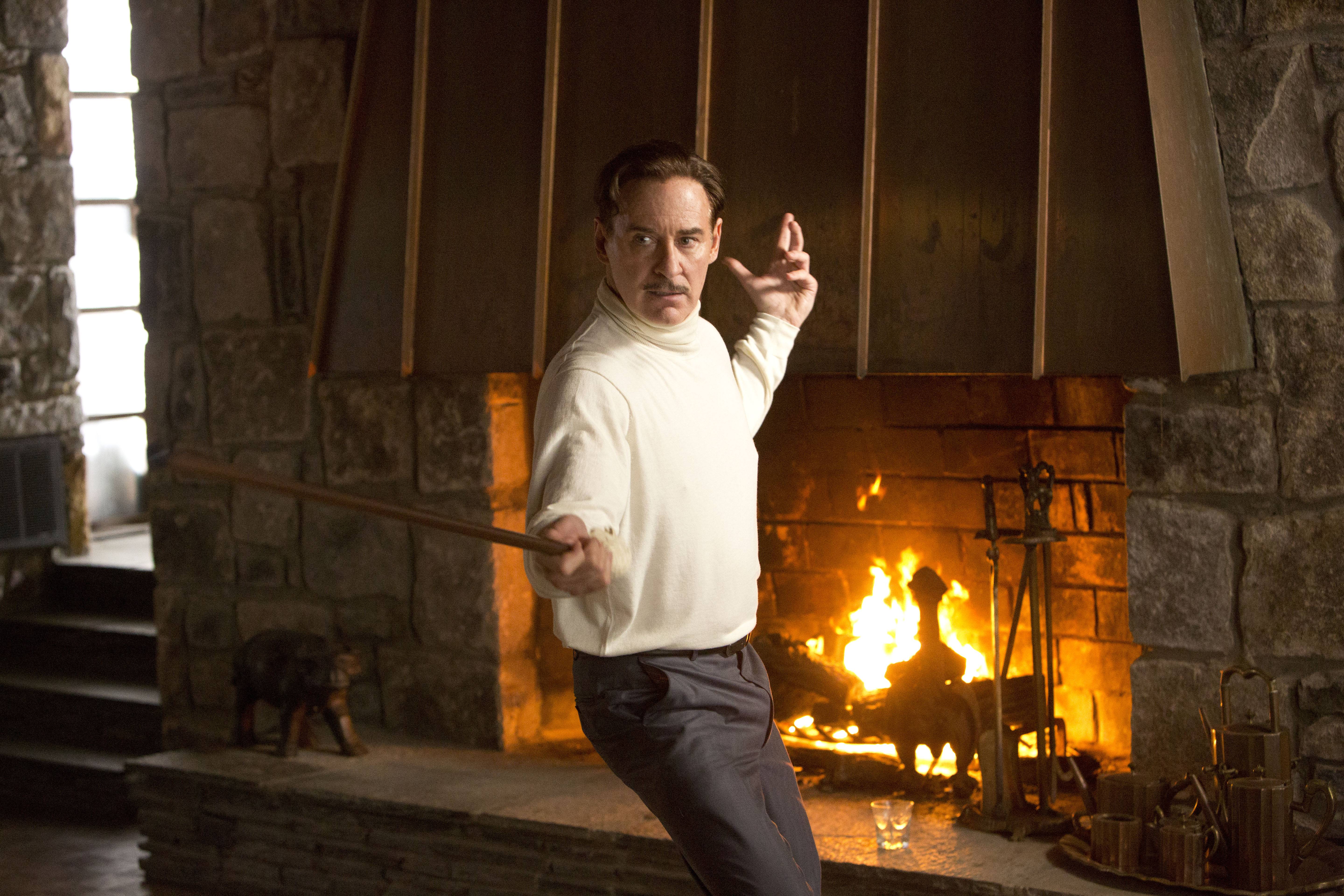Career on the skids, unable to remember his lines, performing some kind of Broadway abridgement of Jane Eyre, a bloated, alcoholic Errol Flynn wanders about the stage, reading from cue cards in the wings. It’s a brief scene, and not a little sad: Flynn, once so handsome and charismatic, is clearly not much of an actor (and he knows it). But the actor playing Flynn in this May/December mediocrity can certainly command a stage: Kevin Kline. There’s a good joke in here, one of several suggested by the once-famous swashbucker’s notorious life, that falls flat in this underwritten movie. A first-rate actor playing a faded yet glamorous actor from an earlier Hollywood era—well, we’ve seen that before with Peter O’Toole in 1982’s My Favorite Year.
The Last of Robin Hood, unfortunately, is nowhere near so clever. To begin with, it goes the melodrama route in relating the true story of Flynn’s final romance with a teenager (Dakota Fanning), a relationship enabled by her alcoholic stage mother (Susan Sarandon). Beverly is 15 when Flynn spots her on the backlot in 1957, he 48 and two years away from a fatal heart attack. This is a love that clearly won’t last, and the film begins after Flynn’s death, its story skipping back and forth with Florence’s narration. (She’s being recorded for a tell-all memoir, the vodka bottle slowly draining as the tape unwinds, published in 1960.) Florence is half-deluded about Flynn deflowering her daughter, and half-seduced by the attention he pays her, too. Acting as pimp-chaperone gets her trips, liquor, and parties. Where’s the pathos in the mother, the desperation in the daughter, the wickedness in the star? The script never shows us, instead treating Florence to lines like “I didn’t want our lives turning from an A-picture to a B-movie.” Given that everyone here—stars and hangers-on—is part of the Hollywood dream factory, the results are surprisingly dull.
Filmmakers Richard Glatzer and Wash Westmoreland (Quinceanera) are clearly in love with the late-’50s idea of fading Hollywood: midcentury modernist living rooms, constant cocktail swilling, and the jarring rise of TV and teen culture. But Mad Men and the underrated 2012 Hitchcock have captured that postwar period with far more bite. The Last of Robin Hood feels tame by comparison; it’s too much Stella Dallas, not enough John Waters. Huge opportunities are missed: Flynn actually made a pro-Castro movie with Beverly in Cuba, while fighting was still underway; and he even pitched Stanley Kubrick that he and Beverly star in Lolita ! These are the pearls of truth that Glatzer and Westmoreland fail to polish and embellish in a movie bound for future broadcast on Lifetime. Kline and Sarandon deserve better; though this is the best Florence and Beverly could’ve hoped for. As for Flynn, his unrepentant posthumous autobiography, My Wicked, Wicked Ways, is still in print—and still waiting to be filmed. Opens Fri., Sept. 12 at Seven Gables. Rated R. 90 minutes.
bmiller@seattleweekly.com








